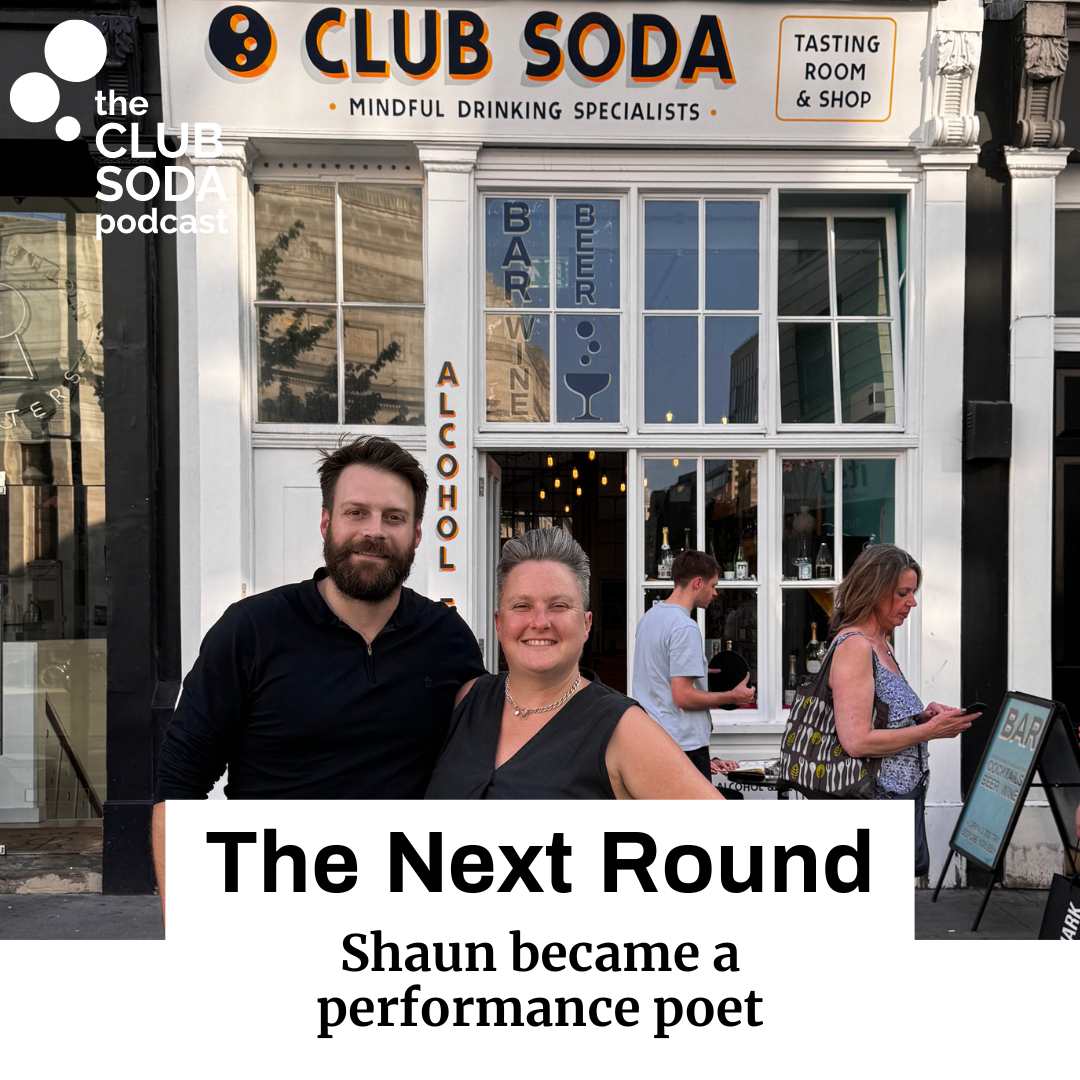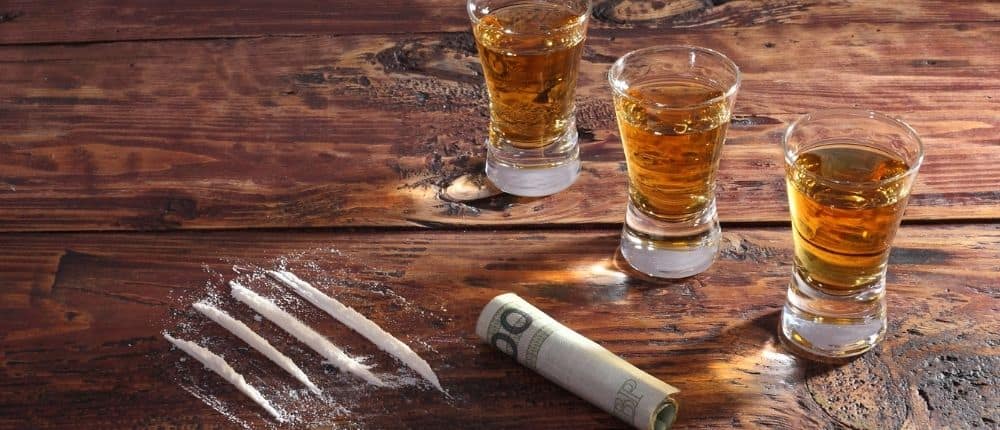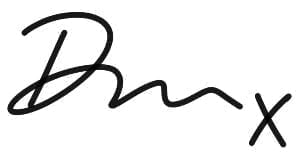
This website uses cookies to improve your experience. We'll assume you're ok with this, but you can opt-out if you wish. Read More
The Next Round: What happens after you change your drinking?


I don’t think I’ll get to the stage where I’m drinking every day, but I can’t stop binging at weekends. Loads of alcohol and drugs and indulging in really poor behaviour that has a massively detrimental effect on my life. I literally can’t stop even though I know my life would be unspeakably better if I did. I need some inspiration. How can I stop? David

Because of the hidden nature of substance use, it’s hard to say how many of us take other drugs when we’re drinking. The UK’s Office for National Statistics estimates that 1 in 11 adults took a drug last year. Given the prevalence of drinking in society, and the numbers of people who want to change, I think we can fairly say that you’re not alone if you are thinking about quitting alcohol and drugs.
I’ve written before about how to stop binge drinking and how to avoid drinking at home. Depending on where your drug and alcohol binges are happening, both of these will give you some practical tips on stopping. But it’s useful to talk a little about how alcohol and other drugs interact with each other. And how to change your relationship with two or more substances, at the same time or one after the other?
Rather than talking about alcohol and drugs, it’s more accurate to discuss alcohol and other drugs. Because drinking is so commonplace, we tend not to consider alcohol as a drug. But it has complex effects on the human body. So when we take other drugs alongside consuming alcohol, we’re not taking the other drugs in isolation. Any other substances we take combine and interact with alcohol, sometimes in unpredictable and dangerous ways.
If you are taking any other drugs alongside alcohol, educate yourself about their effects and interactions.
This article isn’t intended a comprehensive list of drugs and their interactions with alcohol. And frankly, humans consume many legal and illegal substances because we need, enjoy and sometimes crave their effects. So whatever else you do, if you are taking other drugs alongside alcohol, educate yourself about what you are taking. Start here:
But there are some combinations of alcohol and drugs that are particularly common, and it’s worth understanding the basics:
It’s useful to reflect on how you use alcohol and other drugs. Any substances will have effects, but what’s the bigger picture for you? Be kind to yourself as you ask these questions, but honest and brave too:
Even if your weekend binges are destructive, your motivation for them is valid. Escape, transcendence and excitement are all legitimate human needs. And you can achieve any of them without getting high or drunk.
It can also help to consider whether one drug is a gateway to another. For example, it’s not uncommon to find that you drink more when you’re doing cocaine, but which starts first for you? If you only drink heavily on the days when you’re doing coke, dealing with your cocaine habit seems like the obvious place to start. But if you only find yourself messaging your dealer when you get to the end of a bottle of wine, then your focus should probably be on your drinking. You may find that focusing on one problem gets you a long way towards sorting out the other.
Escape, transcendence and excitement are all legitimate human needs, and you can get any of them without a weekend binge.
Finally, begin to pay close attention to how you drink or take drugs. In our courses, we help people understand how their drinking can be social, emotional and routine. These different dimensions of drinking can be true for drugs too. Are you taking drugs to connect with others socially? Are you using drugs to cope with difficult emotions? Or is doing drugs just part of your weekend routine? Your use of alcohol and other drugs will happen in different contexts, and you’ll want specific plans for your most challenging situations. So be forensic in your examination of your habits.
Changing your relationship with multiple substances at once can be difficult, and you may want to reach out for professional support. For example, Stephanie Chivers – an experienced coach that Club Soda is happy to recommend – specialises in alcohol and cocaine use.
Ultimately, you will stop your weekend binges by creating a life you can enjoy when you’re not drunk and high.
You’ll find various groups online too, like the Club Soda community, where you can talk about these issues with people who understand.
Ultimately, and I know this from my personal experience, you will stop your weekend binges by creating a life you can enjoy when you’re not drunk and high. These bigger life changes can be scary, but the rewards are enormous. So don’t stop trying. And don’t beat yourself up over the occasional blowout. Just keep moving in the right direction. You’ll get there.
Cheers

If you want support and help to change your relationship with alcohol, Dru Jaeger leads all of Club Soda’s courses. Sign up for our free course, How to Change Your Drinking, to get started today.
This website uses cookies to improve your experience. We'll assume you're ok with this, but you can opt-out if you wish. Read More
| Name | Domain | Purpose | Expiry | Type |
|---|---|---|---|---|
| wpl_user_preference | joinclubsoda.com | WP GDPR Cookie Consent Preferences. | 1 year | HTTP |
| PHPSESSID | www.tickettailor.com | PHP generic session cookie. | 55 years | HTTP |
| AWSALB | www.tickettailor.com | Amazon Web Services Load Balancer cookie. | 7 days | HTTP |
| YSC | youtube.com | YouTube session cookie. | 55 years | HTTP |
| Name | Domain | Purpose | Expiry | Type |
|---|---|---|---|---|
| VISITOR_INFO1_LIVE | youtube.com | YouTube cookie. | 6 months | HTTP |
| Name | Domain | Purpose | Expiry | Type |
|---|---|---|---|---|
| _ga | joinclubsoda.com | Google Universal Analytics long-time unique user tracking identifier. | 2 years | HTTP |
| sbjs_migrations | joinclubsoda.com | Sourcebuster tracking cookie | 55 years | HTTP |
| sbjs_current_add | joinclubsoda.com | Sourcebuster tracking cookie | 55 years | HTTP |
| sbjs_first_add | joinclubsoda.com | Sourcebuster tracking cookie | 55 years | HTTP |
| sbjs_current | joinclubsoda.com | Sourcebuster tracking cookie | 55 years | HTTP |
| sbjs_first | joinclubsoda.com | Sourcebuster tracking cookie | 55 years | HTTP |
| sbjs_udata | joinclubsoda.com | Sourcebuster tracking cookie | 55 years | HTTP |
| sbjs_session | joinclubsoda.com | SourceBuster Tracking session | Session | HTTP |
| Name | Domain | Purpose | Expiry | Type |
|---|---|---|---|---|
| mailchimp_landing_site | joinclubsoda.com | Mailchimp functional cookie | 28 days | HTTP |
| __cf_bm | tickettailor.com | Generic CloudFlare functional cookie. | Session | HTTP |
| NID | google.com | Google unique id for preferences. | 6 months | HTTP |
| Name | Domain | Purpose | Expiry | Type |
|---|---|---|---|---|
| _ga_10XZMT03ZM | joinclubsoda.com | --- | 2 years | --- |
| AWSALBCORS | www.tickettailor.com | --- | 7 days | --- |
| cf_clearance | tickettailor.com | --- | 1 year | --- |
| VISITOR_PRIVACY_METADATA | youtube.com | --- | 6 months | --- |
Join Club Soda for 10% off your first order of drinks for UK delivery. Plus get our latest news and special offers for members to choose better drinks, change your drinking and connect with others.
If you get an error message with this form, you can also sign up at eepurl.com/dl5hPn